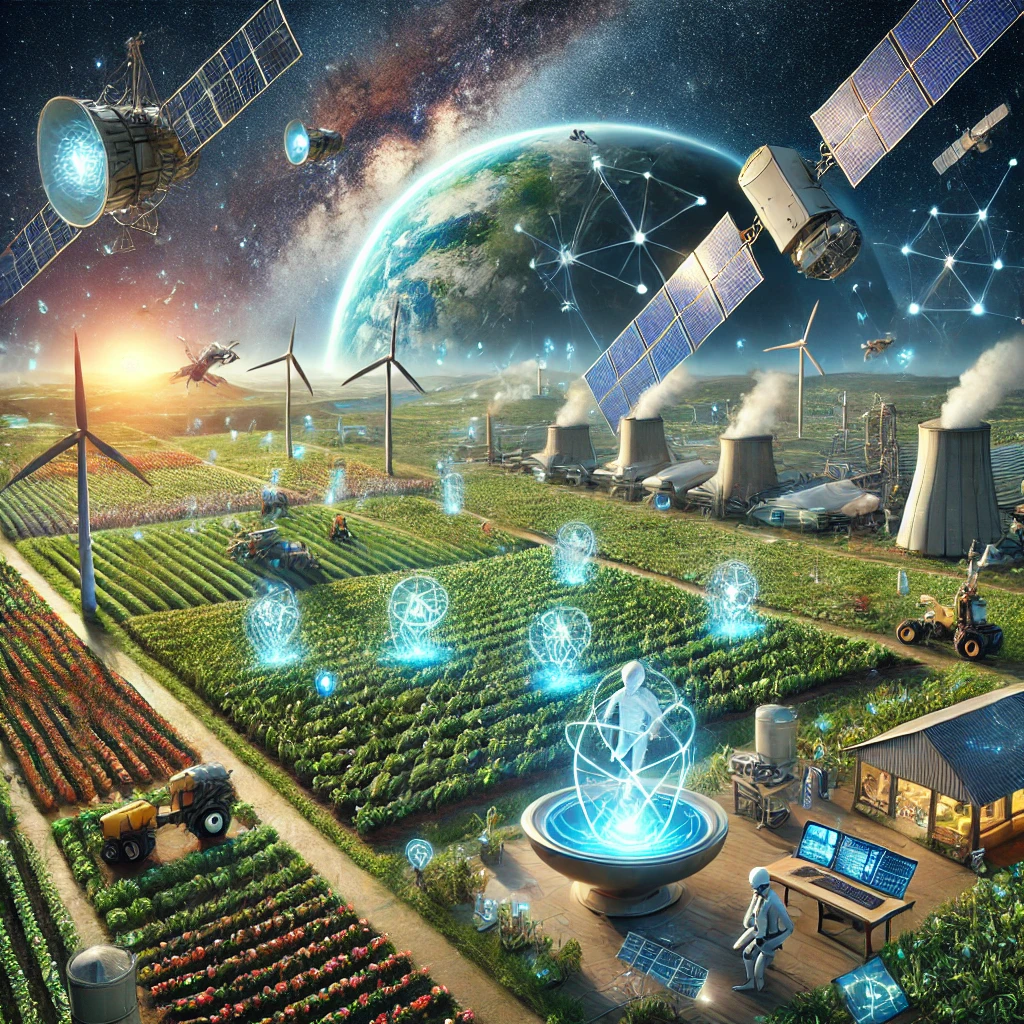
By Cliff Beek
As the global population continues to expand and the effects of climate change become more pronounced, the agriculture sector faces an urgent need for precise and actionable data. Farmers and growers are grappling with reduced vegetation yields, threatening the food supply essential for sustaining a growing population.
By the turn of the 21st century, the agriculture sector has been faced with complex challenges. The global population is projected to reach 10 billion by 2050, which will necessitate a staggering 70 per cent increase in food production in order to meet demand.
At the same time, the human race is bracing climate change that poses a significant threat to crop yield, with estimates suggesting a potential decline of 10 to 25 per cent over the next two decades. Rising temperatures, altered precipitation patterns, and extreme weather events compound these issues and exacerbate food insecurity.
Moreover, the rising demand for organic and high-quality foods places additional strain on existing agricultural frameworks. To address these challenges, agricultural and environmental workers have increased the use of fertilisers and pesticides. However, these traditional approaches have often proven counterproductive, leading to detrimental effects on crops and fields without achieving the desired outcomes.
In response to these pressing issues, the power of science and technology can help navigate the challenging times we live in and fortify our planet against the uncertainties of a rapidly changing world. Innovation in space technology provides the means and tools to help transform agriculture by providing critical data and insights that can enhance productivity, sustainability and resilience to climate change.
By leveraging Earth observation, precision agriculture, and advanced weather forecasting, space technology can help farmers adapt to changing environmental conditions and ensure food security for the growing global population.
Integrating space tech with AI
Integrating space tech with AI can open up new possibilities that were once thought to be unattainable.
The combination of these advanced deep technologies can help analyse global satellite data and identify vegetation with superior traits that can withstand the impacts of climate change, allowing for the precise monitoring of crop health, soil conditions and environmental factors, and enabling farmers to make informed decisions that optimise yield and sustainability.
Genetic engineering techniques can also be integrated and applied to help cultivate resilient crops that not only survive but thrive in changing climatic conditions, ensuring a stable food supply for the future.
Plant species with inherent traits that make them more resilient to climatic stresses can also be identified with AI and space tech. And through genetic engineering, these traits can be amplified which will result in crops that can withstand extreme weather conditions, such as droughts, floods, and heatwaves. This enhanced resilience is crucial for maintaining high yields and ensuring food security in the face of unpredictable climate patterns.
Harnessing the power of quantum computing
In addition to leveraging AI, quantum computing can also be integrated with space tech to delve into the intrinsic effects of weather on plant growth.
Quantum computing, with its unparalleled processing power, can analyse complex environmental data at unprecedented speeds. This capability allows for a deeper understanding of how different weather patterns and climatic variables impact agricultural productivity, offering comprehensive insights that traditional computing methods cannot achieve.
Quantum computing’s ability to process vast amounts of data quickly and accurately equips farmers with the insights needed to make informed decisions. By understanding the intricate relationships between weather patterns and plant growth, farmers can implement strategies that mitigate the adverse effects of climate change and improve overall crop health.
Through the integration of AI and quantum computing with space tech, the most effective tools can be offered to agricultural and environmental professionals to combat climate change and promote sustainable practices. This dual approach not only addresses the immediate challenges posed by climate change but also lays the groundwork for a resilient and sustainable agricultural future.
A vision for the future
As the global population continues to rise and the effects of climate change become more severe, the need for precise and actionable data in agriculture has never been greater. The integration of space and deep technologies such as AI and quantum computing can provide a promising solution to help equip agricultural professionals with the insights and capabilities needed to ensure a stable and sustainable food supply for generations to come.
By harnessing the power of AI, quantum computing and space tech, the agricultural and environmental sectors can achieve unprecedented levels of efficiency, accuracy and capability. Collaborative efforts and continued research are also essential for overcoming challenges and realising the full potential of this integration, which will pave the way for advancements in solving the world’s biggest problems.













